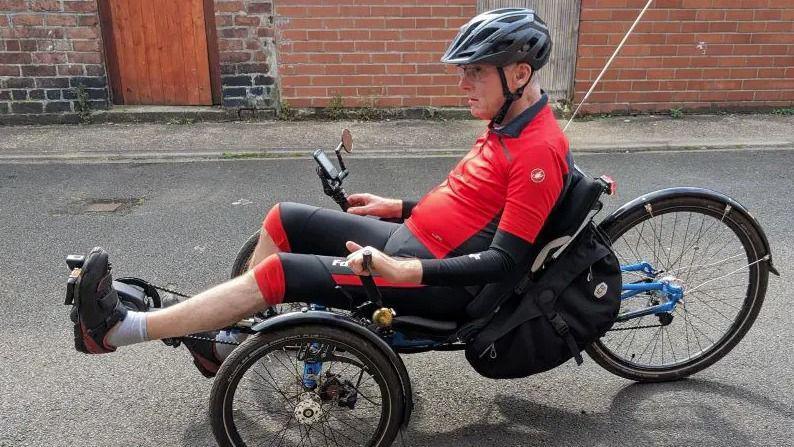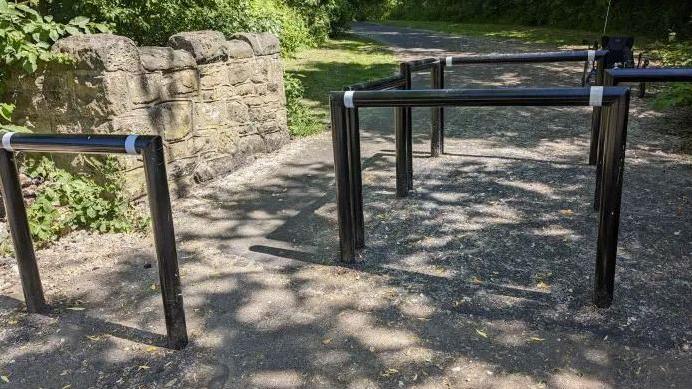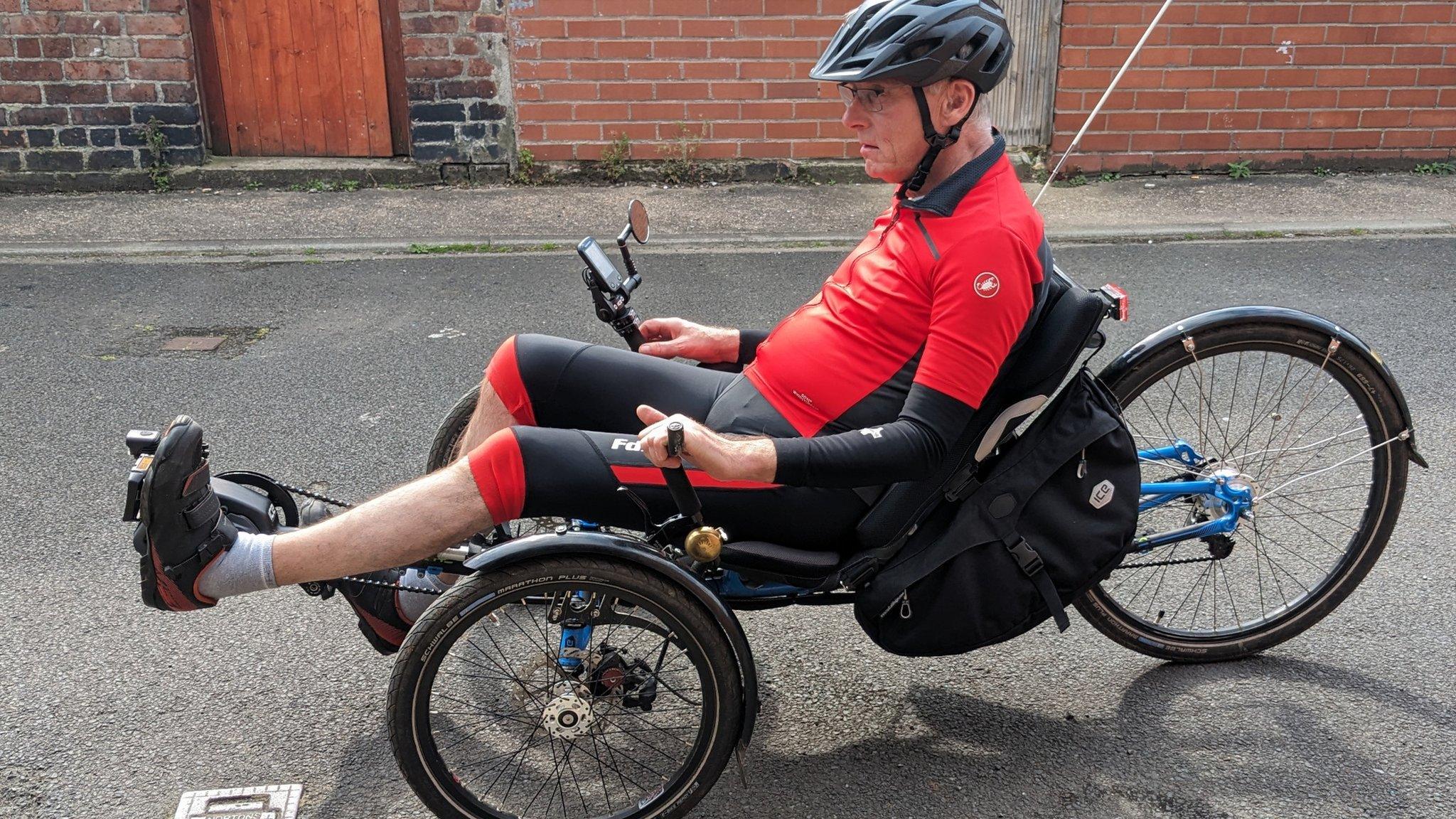Disabled cyclist wins battle over path barrier

Alastair Fulcher challenged the installation of barriers next to a Newcastle section of the National Cycle Network
- Published
A disabled cyclist has claimed victory in a battle with council bosses over barriers which blocked him from a section of the National Cycle Network, the Local Democracy Reporting Service said.
Alastair Fulcher, who has Parkinson’s disease, started legal action against Newcastle City Council last year after finding barriers installed at Pottery Bank in Walker made it impossible for him to access the Hadrian’s Cycleway path.
The barriers were intended to deter nuisance motorbikes, but also blocked the 61-year-old’s recumbent tricycle (a 6ft 5in (2m) cycle widely used by disabled people).
Following an out-of-court agreement, Urban Green and Newcastle City Council confirmed the barriers would be moved.
Mr Fulcher, from Wallsend, argued the council and Urban Green, the charity which manages the city’s parks and green spaces, had discriminated against disabled cyclists and were in breach of the Equality Act.

Barriers on Pottery Bank, Newcastle, blocked access to the National Cycle Network
He said: “It’s a fact that the UK’s cycling infrastructure is awful compared to the continent. Certainly around Newcastle, barriers such as this one are common.
“I have mixed feelings about agreeing to an out-of-court settlement, I have a nagging suspicion that local authorities will not improve their behaviour around this issue until such time one of them is taken to court and loses with the award of a substantial cash settlement.
'Improving accessibility'
The two organisations pledged to work with Mr Fulcher to improve access to the coast-to-coast cycle path.
In a joint statement, Urban Green and Newcastle City Council said: “We would like to thank Mr Fulcher for bringing this issue to our attention and agreeing to work with us to find a solution that works for everyone.
"We have agreed to relocate the barrier on the east side of the path and consult with Mr Fulcher during the process."
Disabled people’s cycling organisation Wheels for Wellbeing said it was “fantastic” the barriers would be modified and urged councils across the country to “recognise that barriers which prevent legitimate users from accessing public spaces and public rights of way are unlawful”.
Follow BBC North East on X (formerly Twitter), external, Facebook, external and Instagram, external. Send your story ideas to northeastandcumbria@bbc.co.uk
Related topics
More stories from BBC North East and Cumbria
- Published18 September 2023
